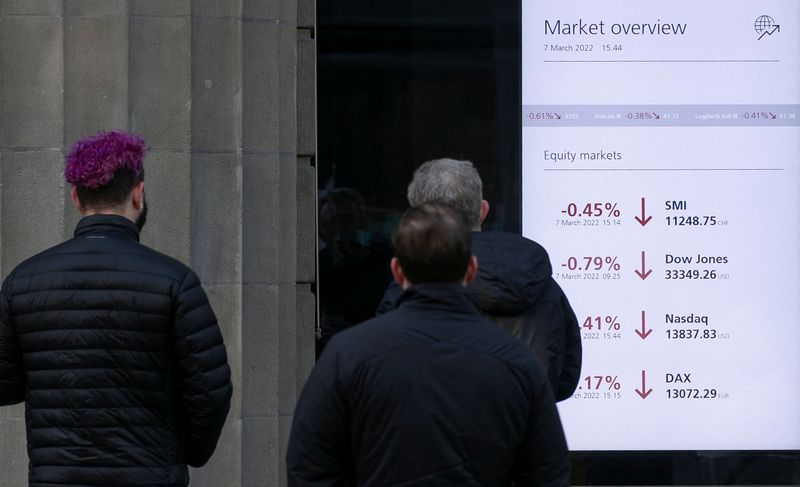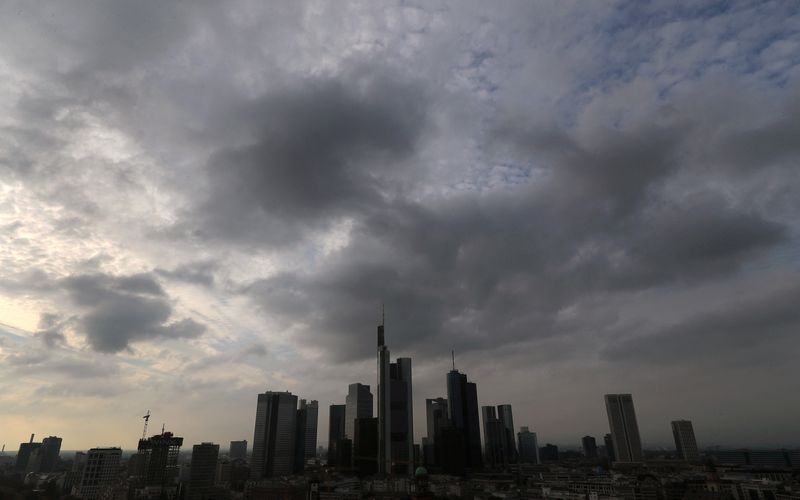By Huw Jones, Francesco Guarascio and Jonathan Saul
BRUSSELS/LONDON (Reuters) - Russia faces further economic sanctions, as European officials prepared to meet on Tuesday to debate new restrictions, and more investors withdrew from the country.
The European Commission has prepared a new package of sanctions against Russia and Belarus designed to hit additional Russian oligarchs and politicians and three Belarusian banks, three sources told Reuters on Tuesday.
The draft sanctions were adopted by the EU executive early on Tuesday and will be discussed by EU ambassadors at a meeting later in the day, one of the sources said on condition of anonymity.
The package, provided it is endorsed by the ambassadors, will ban three Belarusian banks from the SWIFT banking system and add several oligarchs and Russian lawmakers to the EU blacklist, the sources told Reuters.
They said the package also proposes bans on exports of naval equipment and of software from the EU to Russia and gives guidance on the monitoring of cryptocurrencies to avoid their use to circumvent EU sanctions.
At the same time, lenders and investors have continued to cut their ties with Russia, with British asset manager and insurer M&G the latest to describe the country as uninvestable.
The company's Russian assets have been marked down to almost zero, and CEO John Foley said it had no plans to buy more.
"Russia is an uninvestable market from a ratings perspective. Any additional investment is clearly unthinkable," he said.
Britain's finance ministry has met asset managers to explore how the sector could offload holdings in Russian companies that face sanctions, the Investment Association said on Tuesday.
Bank of England Deputy Governor Sam Woods said he believed Britain's insurers and the wider financial sector would be able to absorb the impact of sanctions.
Britain has banned Russian companies from the multi-billion dollar aviation and space insurance market, and some Russian banks are being sanctioned and disconnected from SWIFT.
"We looked very carefully at whether we think these are manageable in terms of any collateral damage or impact on the UK financial services sector, and so far we are comfortable that they are," Woods told an upper house committee.
Ukrainian civilians began leaving two besieged areas on Tuesday after Russia opened "humanitarian corridors" for them, but Kyiv said Russian forces had shelled an evacuation route from the port city of Mariupol.
Russia invaded Ukraine on Feb. 24, describing its actions as a "special military operation".
Since then, at least five commercial ships have been hit by projectiles and London’s marine insurance market has widened the area of waters around the Black Sea and Sea of Azov that it deems high risk.
The euro zone banking share index made a 6.3% gain, as it recovered from 13-month lows on Monday.
Bank stocks had fallen sharply as investors prepared for the conflict's economic cost, with lenders with operations in Russia - including Austria's Raiffeisen, Italy's UniCredit and France's Societe Generale (OTC:SCGLY) - the hardest hit.

They staged a double-digit rebound on Tuesday. Raiffeisen gained 13% and Unicredit (MI:CRDI) and Societe Generale 10%, recouping some of their earlier falls.
($1 = 0.9204 euros)
